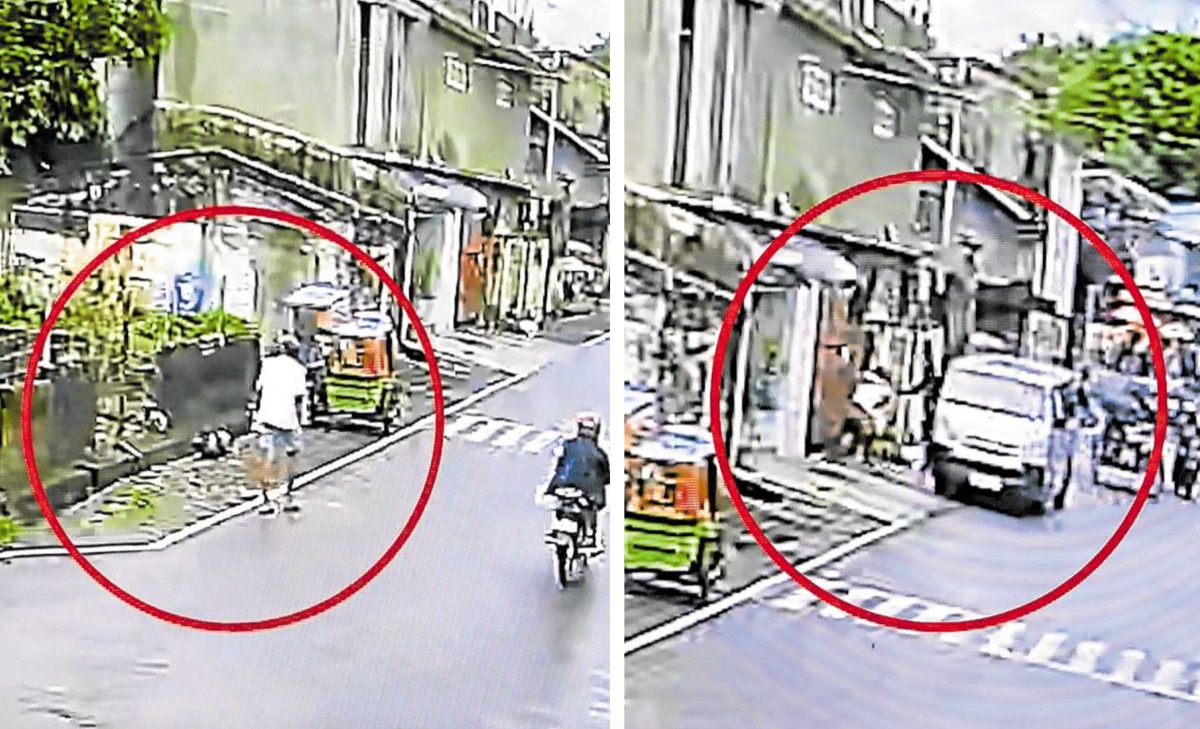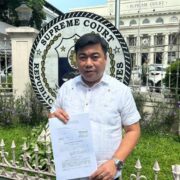Families push for gov’t action on disappeared

Having her father forcibly taken by unknown individuals and not knowing his whereabouts after nearly a year has been like riding a seesaw for Felicia Ferrer, daughter of missing activist Felix Salaveria Jr.
It’s kind of maddening, Ferrer told the Inquirer, because there are days when she would feel okay, and then suddenly she won’t.
“Every day you ask yourself, where is my father? Will he be able to come back?” she said.
Salaveria went missing on Aug. 28 last year after unidentified men pulled him inside a silver Toyota van while he was walking home in Tabaco City, Albay. The incident was caught on security footage, which became vital evidence in the case.
He turned 67 on Saturday, but instead of celebrating what should have been a happy occasion, Ferrer was in a forum with journalists in Quezon City recounting how her father disappeared.
Legal win
Last month, the Court of Appeals (CA) granted her and her sister’s petition for a writ of amparo and ordered state agents to conduct a proper investigation into their father’s case.
She was relieved that the justices saw the lack of action on the government’s part to properly look into her father’s disappearance, but, at the same time, she emphasized that “true happiness” was not just winning the legal battle but finally being reunited with Salaveria and having him with them to celebrate his birthday.
More than a decade since the enactment of the Anti-Enforced or Involuntary Disappearance Act of 2012 and the availability of legal and protective remedies in court, rights lawyer Maria Sol Taule lamented how these measures have failed to help victims, especially because law enforcers do not properly implement the law’s provisions.
Recommendations
Among her recommendations to address the gaps in implementation of Republic Act No. 10353 is a robust, timely and structured legislative oversight by Congress to ensure the compliance with the law.
Taule, who had been part of several fact-finding missions or quick response teams on cases of enforced disappearances of activists, cited for instance Section 6 of the law which requires access to communication saying it had been “absolutely violated.”
“Lawyers are denied access to camps, to jails. They were delaying us every time. They would say that the person we are looking for is not there,” she said during a roundtable discussion organized by Karapatan on Saturday.
Taule also noted that under Section 8 of RA 10353, if a member of the media, a family member or a lawyer or a member of the civil society organization went to a certain police station or military camp or whichever places of detention and they’re looking for someone, that institution is obliged to issue certification saying that that person is not there.
Compliance
But based on her experience, she said officials refused to sign these certifications, which are intended to help them cross out the areas where the missing person could be.
Taule also called on the courts to state specific periods for the issuance and compliance to the petitions for habeas corpus, amparo and habeas data in the cases of persons abducted or arrested.
Cora Jazmines, wife of another missing activist James Jazmines, lamented how the Supreme Court took months to resolve her petition for a writ of amparo and writ of habeas data in relation to the case of her husband who went missing on Aug. 23 last year after attending Salaveria’s birthday celebration.
Review
This, even though her petition was filed on the same day that Salaveria’s daughters sought the same legal remedies. The Supreme Court acted on the petition of Salaveria’s daughter as early as December 2024 while it issued a temporary protection order for Jazmines’ family in July.
Under the law, Taule noted there are periods required for judges to resolve a case but these are not always complied with especially when parties would file motions to extend the deadline of filing a reply on the petition.
“So the case would drag again for a month. When we say this remedy should be very accessible, this should be also resolved very swiftly because we’re talking about lives and security of people. And under the law, these cases are summary in nature,” Taule said.
“When we say summary, it should be really very quick. And I guess, eight months or one year is not quick. There’s a lot of things that could happen to a person in one hour, but more in one month,” she added.
According to her, the National Union of Peoples’ Lawyers is working on the review of the protective writs and will coordinate with the Supreme Court to address the main problem which is that the “burden is always on the person seeking the remedy and not on those who detained the [missing individuals].”
“What if they did not release [the missing person] what’s the penalty? What would happen to them? Will their position be forfeited or will their pensions be not given after retirement?” Saule asked.
In July 2024, the Supreme Court announced that its human rights committee launched a series of multisectoral focus group discussions on the protective writs of habeas corpus, amparo and habeas data.
The consultations were intended to obtain a “deeper understanding of the effectiveness and limitations of the protective writs.”

















